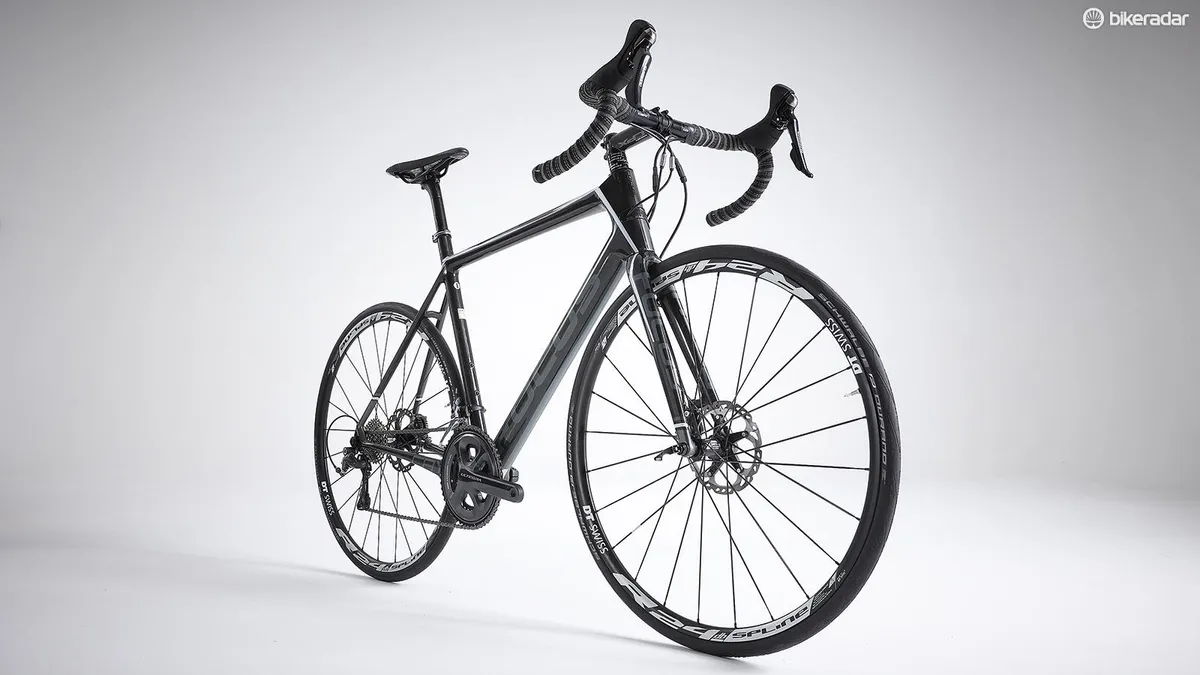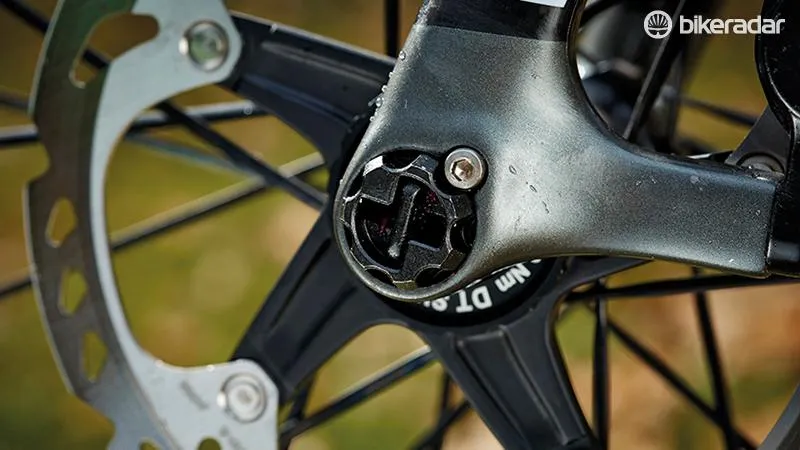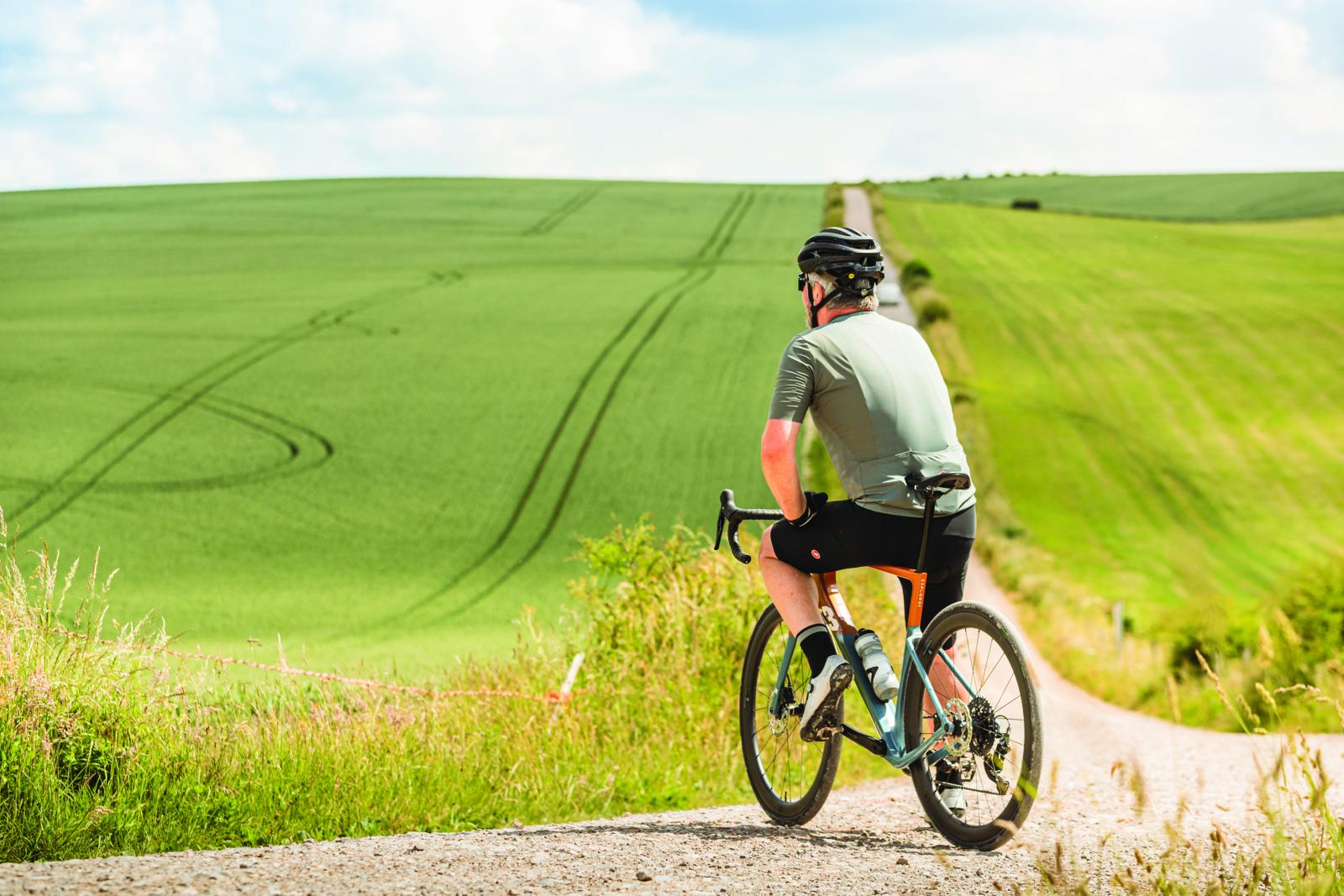The original Cayo earned Focus a reputation for being able to put together a great carbon race bike at a very reasonable price. From that the German firm has continued developing with the range topping Izalco Max, one of the finest lightweight pro level machines around, and with the Izalco Ergoride, an excellent endurance-biased ride
So the Cayo sits somewhere in between. It’s certainly not an endurance bike – the geometry figures spell that out straight away. Indeed, with its low 165mm head tube (on our large test bike) aggressive parallel 73.5 angles, short 995mm wheelbase and mid-to-long reach (400mm) it's as aggressive as any full-on racer.
- Highs: Lightweight chassis wrapped up with an aggressive ride position
- Lows: Deserves faster tyres and quieter disc rotors
- Buy If: You want a disc road bike built for racers that’s as state of the art as it gets
The big difference is that it has discs, and not just discs added to the frame – this machine was conceived with them. It also, still unusually, features both front and rear mountain bike style thru-axles. The claimed advantage of this design is an increase in stiffness from the solid oversized connection at the dropouts and perfect brake alignment every time – rotor rub is something that we roadies just wouldn’t stand for.
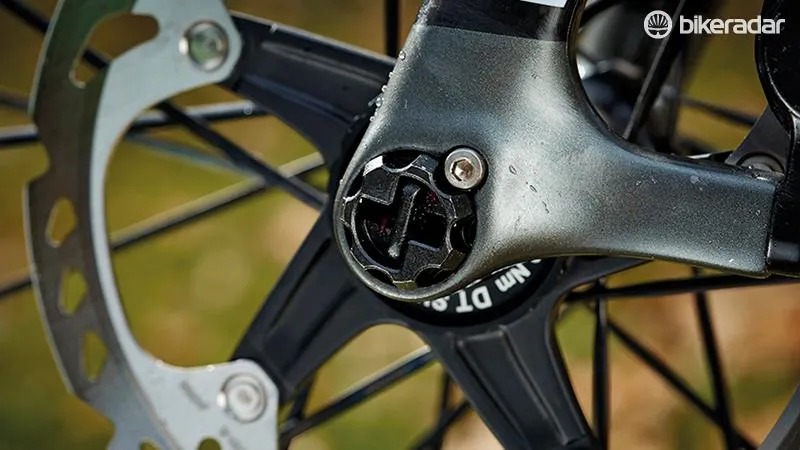
The RAT thru-axle combines stiffness and security with the speed of a standard quick release
We all know that discs can’t yet be raced in the peloton, but reports coming out of Focus-sponsored AG2R are that the team have chosen to ride the Cayo Disc over the winter in preference to their usual Izalco Max. If pro racers are opting for it, why wouldn’t you?
With most other manufacturers holding out on thru-axles, though, its bold for Focus to commit so soon. In a neat trick, however, the RAT axle system, rather than relying on a tensioned spring or a laborious screw-down mechanism, uses a T-shaped end piece that locks into a fixed slot on the opposite end of the axle to the handle. Simply push the axle through, quarter-turn the lever and lock down – and your wheel's in place. To remove, simply reverse the process. Once you're up to speed with the system it's quick – faster than any other thru-axle we’ve seen, and faster than a standard quick release equipped with those pesky lawyer tabs.
You might think that all this extra tech would have some adverse effects on the frame and fork weight. The Cayo though is impressively light, with a frame weight that dips under 900g and a fork that’s just 350g, disc mounts and 15mm dropouts included. That’s clever stuff and gives the Cayo the potential to be a seriously lightweight machine, not that it’s heavy anyway at 8.3kgs in a size large (effectively a 57cm bike). Focus’s design team have also reworked the carbon content and layup for every size from the tiny XS (48cm) to the XL (60cm) to ensure that each one rides with the same amount of stiffness and compliance.
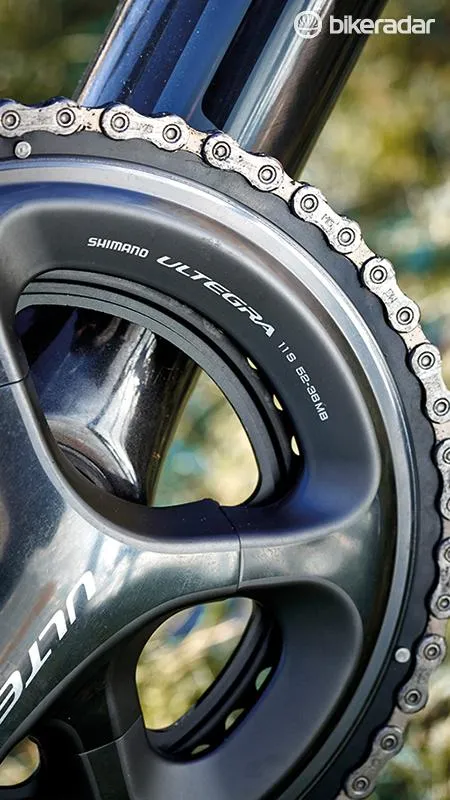
We like the 52/36 chainring pairing – perfect for upping your speed on the flat without compromising on the climbs
With the front axle diameters being 15mm and the rear 12mm, these are substantial connections that you can feel as soon as you step onto the bike. In fact, for our first few hundred yards of riding we wondered whether Focus had gone overboard on the stiffness, a return to the bad old days of German bike design when rigidity and lightness were seemingly all that mattered.
Thankfully once we sat down and started to really ride the Cayo, we found that the stiffness translates into a feeling of direct control. With the DT Swiss Spline wheels matching the rigidity of their connection to the bike it gives the Focus a tangible sharpness and speed to any direction-changing inputs. It darts around with the speed of a startled stickleback – this is a bike you need to keep your wits about you when riding in order to get the most from it.
That said, while the Cayo may well be razor-sharp and race bike shaped, that doesn’t mean Focus has made no concessions to more endurance-minded riders. What impressed us most is that this isn't only a direct, fast and flighty ride – it's also compliant where it needs to be. We detected no noticeable buzz from the front end, and found the rear firm but by no means harsh – even on the roughest gravel and tired tarmac. It’s a bike we happily rode all day, over anything we could find, and enjoyed every minute of it.
The 52/36 chainrings are paired with an 11-28 block giving ample range for climbers and sprinters alike; Focus has also fitted the wide rimmed wheels with fat 25c Schwalbe Durano rubber. That's a tough option, offering great wet weather grip – but doesn’t feel quite as rapid to accelerate as we’d like, (a better option, in our opinion, might be a Schwalbe Ultremo or One in the same width).
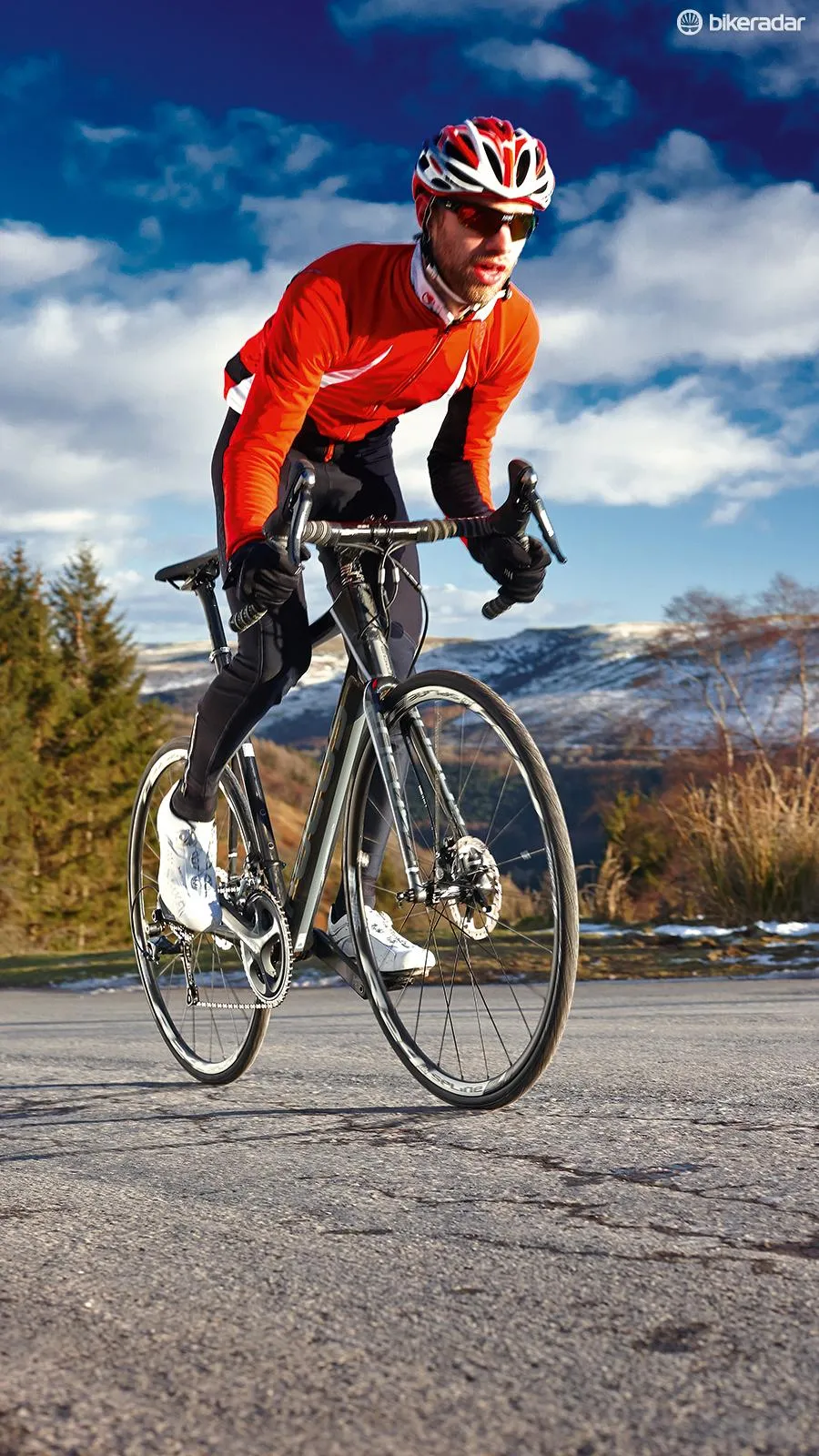
The CEX bar's outward sweep encourages you to get well-acquainted with the drops
The cockpit combines a CEX bar and stem; the bar's drop has a slight outward sweep, which encourages you to spend more time in the drops in an aggressive elbows-out style. At the back it's good news too with Focus choosing the legendary Fizik Arione saddle – enabling us to shift forward for the climbs and slide back on descents to get as aero as possible.
The drivetrain is almost completely Ultegra, one little cost-cutting concession being the 105 cassette. It has no effect on the shift performance (it's still flawless) but it does add a few grams.
The other cost cut, namely the use of non-Ice-Tech Shimano rotors to accompany the RS685 brake units, has more of an effect. The control, power and feel remained excellent but these were very prone to noise, screeching and howling as soon as they got wet or hot. After our first few long rides the noise has mellowed but it’s never totally disappeared, and while it’s not to the detriment of the bike's performance it is a little anti-social.
Despite the middling Schwalbes and noisy rotors, however, we reckon that this is one of the best disc bikes to date – light, clever, quick and truly exciting to ride. The two niggles are just those – the Cayo has the potential to be a truly legendary disc road machine, but for now it'll have to settle for being merely superb.
